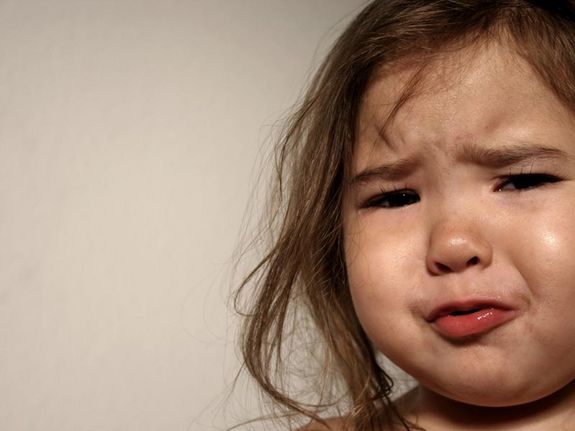Fearful Kids Can't Separate Fantasy from Reality

Get the world’s most fascinating discoveries delivered straight to your inbox.
You are now subscribed
Your newsletter sign-up was successful
Want to add more newsletters?

Delivered Daily
Daily Newsletter
Sign up for the latest discoveries, groundbreaking research and fascinating breakthroughs that impact you and the wider world direct to your inbox.

Once a week
Life's Little Mysteries
Feed your curiosity with an exclusive mystery every week, solved with science and delivered direct to your inbox before it's seen anywhere else.

Once a week
How It Works
Sign up to our free science & technology newsletter for your weekly fix of fascinating articles, quick quizzes, amazing images, and more

Delivered daily
Space.com Newsletter
Breaking space news, the latest updates on rocket launches, skywatching events and more!

Once a month
Watch This Space
Sign up to our monthly entertainment newsletter to keep up with all our coverage of the latest sci-fi and space movies, tv shows, games and books.

Once a week
Night Sky This Week
Discover this week's must-see night sky events, moon phases, and stunning astrophotos. Sign up for our skywatching newsletter and explore the universe with us!
Join the club
Get full access to premium articles, exclusive features and a growing list of member rewards.
Ghosts, monsters, the bogeyman — these are the nightly torments of small children everywhere.
The majority of youngsters experience some form of nighttime fears: fear of nighttime separation, fear of the dark or scary dreams. While most kids tend to outgrow these fears as they age, some children develop severe nighttime phobias. Kids who suffer these severe jitters at night have a harder time distinguishing fantasy from reality, a new study finds.
The study involved 80 children ages 4 to 6 who experienced severe nighttime fears (50 boys and 30 girls) compared with 32 normal children without such fears (18 boys and 14 girls). Researchers interviewed the children and their parents individually to gauge the kids' level of fear.
In the children's interviews, researchers read the kids a brief picture-book story that set the mood for kids to talk about their fears. The parents were asked about the content of their children's nighttime fears as well as how often and severe those fears were. [What Really Scares People: Top 10 Phobias]
Children were given the "Koala Fear Questionnaire," in which they had to rate their fear of scary pictures on a scale of Koala bears depicting different levels of fear. Parents were given another questionnaire asking them to rate their children's fear levels.
The kids were also shown images of real or mythical beings and situations and asked to decide whether the subjects were imaginary or could occur in real life. For example, for mythical figures like a fairy or Bob the Builder, the researchers might ask questions like: "Do you think this fairy can come to your home?" or "Do you think you could see this fairy in a movie or on TV?" The kids also were asked to distinguish between real and fantasy situations, such as "burglars breaking into the house," or "a monster frightening a child in the dark."
Kids who experienced nighttime fears had a harder time making fantasy-reality distinctions than the other kids, the study revealed. The findings suggest a developmental delay in nighttime fear sufferers, the researchers say. In addition, younger children had a harder time at the fantasy-reality task than older ones, showing that the ability improves with age.
Get the world’s most fascinating discoveries delivered straight to your inbox.
Children who have more difficulty separating fact from fiction may be more prone to nighttime fears, the researchers propose. Alternatively, kids who have more nighttime fears might be more likely to confuse fantasy and reality.
The results of the study, which appeared in the February issue of the journal Child Psychiatry & Human Development, have important clinical implications for overcoming nighttime fears, the researchers say. For instance, therapists could work on the underlying problem of separating fact from fiction.
Follow LiveScience on Twitter @livescience. We're also on Facebook & Google+.

 Live Science Plus
Live Science Plus










